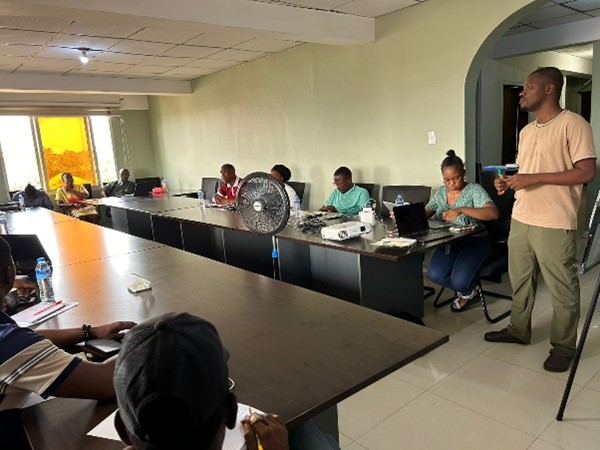Paragraph 1: Context and Importance of the Public Health Bill
Liberia is on the cusp of a significant advancement in its healthcare system with the revised public health bill currently under consideration by the Senate. This bill represents a comprehensive effort to modernize and strengthen the country’s public health infrastructure, addressing critical issues such as sexual reproductive health rights (SRHR), regulation of controlled substances, and the overall delivery of healthcare services. Recognizing the crucial role of informed public discourse in this process, Sister Aid Liberia, with support from the African Population Health and Research Center (APHRC), organized a media engagement workshop to equip journalists with the knowledge and tools needed to effectively report on the bill and its potential impact.
Paragraph 2: Empowering Journalists for Effective Advocacy
The workshop, held in Paynesville, brought together a diverse group of journalists and aimed to enhance their understanding of the revised public health bill. The training focused on the current status of the bill, effective media strategies for advocacy, and key provisions within the bill, including SRHR and the separation of powers within the health sector. By empowering journalists with this knowledge, Sister Aid Liberia sought to foster accurate and comprehensive reporting on the bill, enabling the public to engage in informed discussions and contribute to the legislative process.
Paragraph 3: The Bill’s Journey and the Call for Continued Advocacy
The public health bill has traversed a considerable legislative path, having been passed by the House of Representatives in 2022. However, its progress has stalled at the Senate Health Committee, highlighting the need for sustained advocacy efforts. Titus B. Pakalah, Chairperson of SRHR Champions – Liberia, emphasized the importance of continued engagement from various stakeholders, including the media, civil society organizations, multi-sectoral working groups, and international partners, to propel the bill forward. He highlighted ongoing efforts at community and policy levels, alongside capacity-building initiatives for young champions and health professionals, supported by organizations like APHRC. He also noted growing support from traditional leaders and the adoption of strategic communication approaches.
Paragraph 4: Anticipated Benefits and Improvements to the Health Sector
The revised public health bill holds immense potential for transforming Liberia’s healthcare landscape. Mr. Theophilus G. Fayiah, President of the Liberia National Physician Assistant Association, underscored the bill’s capacity to address critical issues within the health sector, including clarifying the division of labor among healthcare professionals, enhancing the regulation of controlled substances, and strengthening health services nationwide. These improvements promise to enhance the quality and accessibility of healthcare for all Liberians.
Paragraph 5: Collective Action and the Role of the Media
The workshop emphasized the imperative of collective action from all stakeholders, with a particular focus on the media’s crucial role. By effectively communicating the bill’s provisions and potential benefits to the public, journalists can generate widespread support and create momentum for its passage into law. This collaborative effort is essential to ensuring that the revised public health bill becomes a reality, ultimately contributing to a healthier and more equitable future for Liberia.
Paragraph 6: Historical Context and the Path Forward
The revised public health bill represents a culmination of efforts to modernize Liberia’s health system. Initially submitted to the 54th Legislature in February 2020 by former President George Weah, the bill aims to address both current and future health challenges while consolidating existing health laws into a unified framework. The House of Representatives’ passage of the bill in July 2022, following recommendations from the Joint Committee on Health and Judiciary, marked a significant milestone. The focus now shifts to the Senate, where timely action is needed to ensure that this vital legislation becomes law, ushering in a new era for public health in Liberia.














